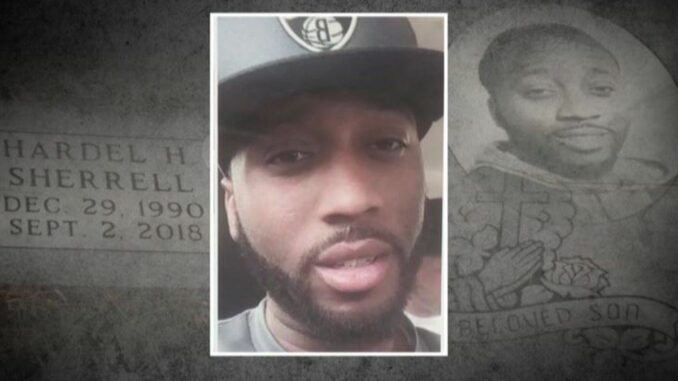Poor medical care for incarcerated people leads to deaths
Elisa Serna was only 24 when she died, due to medical neglect at a San Diego County jail in 2019. Serna was suffering from symptoms including vomiting and fainting, due to an intrauterine pregnancy and drug withdrawal. Her blood pressure was dropping. (Fox 5 San Diego, Oct. 26)
An investigation showed that despite Serna’s obviously deteriorating condition, health professionals at the jail failed to provide lifesaving treatment. As a result of the investigation, both the nurse and physician on duty are charged with manslaughter.
Horrifically, Serna’s death is not an isolated occurrence. In a lawsuit filed against the San Diego County Sheriff’s Department, it is noted, “Even though inmates are dying or suffering catastrophic injuries at an alarming rate at San Diego County jails, the medical and correctional staff whose actions or inactions cause the deaths are not investigated, not informed of their failures, not given further training or remedial instruction and are not monitored or closely supervised after these adverse events.” (tinyurl.com/ynpmscsn)
Mass incarceration has resulted in overcrowded, inadequately maintained facilities throughout the U.S., and the carceral system denies the constitutional right to adequate health care of people held behind the walls. For-profit prison health care contractors are compounding the problem, seeking to maximize profits by limiting resources available to adequately meet the health care needs of incarcerated patients.
Most states contract with private health care companies on a per-inmate, per-day basis. This creates an incentive to deny medical care in order to reduce costs. These private health care contractors will low-bid their competitors for state contracts. Of course, that reduction in the company’s profit is passed on to the consumer, in this case the incarcerated people, through further reduction in health care provided.
According to a 2018 Columbia University study, 97% of incarcerated people with hepatitis C were not receiving the medication they needed. There are countless examples of an aging incarcerated population with a multitude of chronic illnesses not receiving adequate medical care. A recent WHYY report states that 40% of incarcerated people have chronic medical conditions. (tinyurl.com/3a42npf4)
In rare instances, physicians and nurses working in jails and prisons are charged with being criminally negligent when deaths are too horrific to ignore. Nevertheless, the day-to-day injustice in the medical care for incarcerated people is an ethical bind for physicians who take an oath to “first, do no harm” and nurses who are bound to take “action consistent with the obligation to provide optimal patient care,” in accordance with Provision 4 of the American Nurses Association Code of Ethics.
Investigation into the practice of shackling incarcerated hospitalized patients revealed that nurses and physicians routinely fail to follow their own professional and institutional standards around the safe use of restraints. Bradford Gamble, who was incarcerated in Pennsylvania before he received a compassionate release, described how he was shackled to a bed while hospitalized for terminal cancer. Mr. Gamble, prior to his death this year, made an impassioned direct plea to health care workers to treat every patient equally and justly.
Nurses unions speak out
Recently, both the New York and Minnesota state nurses unions have gone public to decry the deplorable conditions within the carceral medical system.
In an article on the union’s website, New York State Nurses Association members who work at Rikers Correctional Center spoke out about the health crisis there. The four nurses in the article have a combined work experience of 75 years at the facility. All four described the conditions as worsening.
Gene Thomas, RN, relates the difficulty in just keeping track of new patients: “The detainees who arrive at Rikers sometimes have been waiting on the prison bus for three to five hours. Some need emergency detox or insulin right away. In the Holding Area, it is ‘normal’ to stay there for four or five days, and they are packed in like sardines. The overcrowding is so severe that some detainees circumvent the medical clinic where I work, because we are so backed up. If they miss their medical evaluation, we have no idea of their condition, and then they go to a housing unit without us knowing.” (tinyurl.com/yz23cxnr)

Nurse Practitioner Stephanie Lundblad who examined Hardel Sharell at the Beltrami County Jail said: “I want justice for Hardel. I want what happened to Hardel to never ever happen to anyone again. I want accountability.”
Last year, the Minnesota Nurses Association organized a campaign targeting private provider MEnD Correctional Care, following the death of Hardel Sherrell in the Beltram County jail. MEnD personnel at the jail failed to act when Sherrell became paralyzed and eventually died alone in his cell. The MNA held a rally outside the Minnesota Medical Practice Board, calling for action to revoke the medical license of Dr. Todd Leonard, who owns MEnD.
Leonard has been under investigation for years because of unethical practices resulting in deaths of incarcerated persons under MEnD care. The nurses union wrote to every county in the state to demand they cut ties with the company, stating: “As members of the health care team we know the need for, and believe in the right for, all patients to receive quality care . . . It is our advocacy for patient safety and care that compels us to write to you . . .” (tinyurl.com/mveyw3bp)

